Animals
-
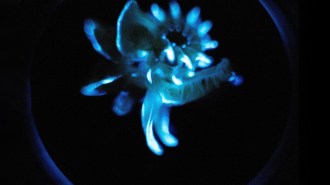 Chemistry
ChemistryHere’s a clue to how this tube worm’s slime can glow blue for days
Mucus oozed by a marine tube worm can glow for up to 72 hours. New results suggest that the light may sustain itself through some clever chemistry.
-
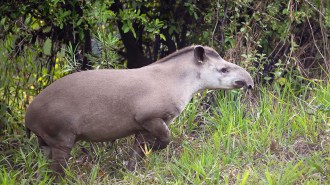 Ecosystems
EcosystemsTapirs may be key to reviving the Amazon. All they need to do is poop
Brazilian ecologist Lucas Paolucci is collecting tapir dung to understand how the piglike mammals may help restore degraded rain forests.
-
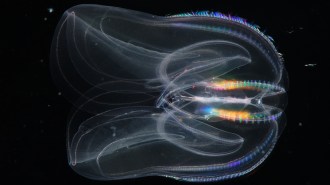 Animals
AnimalsSome comb jellies cannibalize their young when food is scarce
Invasive warty comb jellies feast on their larvae after massive population booms in the summer deplete their prey from waters off of Germany.
-
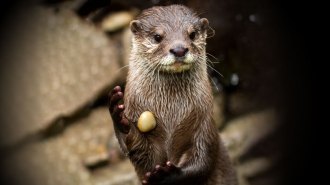 Life
LifeWhy otters ‘juggle’ rocks is still a mystery
Shuffling pebbles really fast looks as if it should boost otters’ dexterity, but a new study didn’t find a link.
By Susan Milius -
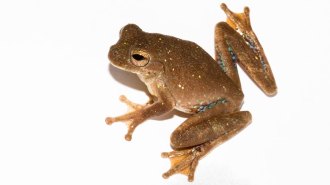 Animals
AnimalsPug-nosed tree frogs use an auditory trick to evade predators and woo mates
A new study finds that some tree frogs exploit what’s known as the precedence effect to get females attention safely.
By Pratik Pawar -
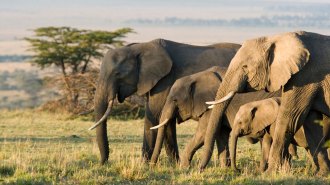 Animals
AnimalsWhy mammals like elephants and armadillos might get drunk easily
Differences in a gene for breaking down alcohol could help explain which mammals get tipsy.
By Susan Milius -
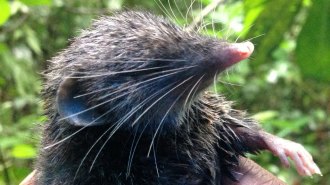 Animals
AnimalsHere’s why a hero shrew has the sturdiest spine of any mammal
The hero shrew’s rigid backbone is among the weirdest mammal spines, its incredible strength aided by fortified vertebrae bones.
By Jake Buehler -
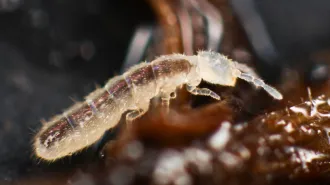 Animals
AnimalsEarthy funk lures tiny creatures to eat and spread bacterial spores
Genes that cue spore growth also kick up a scent that draws in springtails.
By Susan Milius -
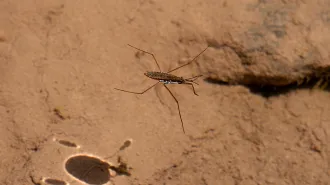 Animals
AnimalsThe ‘insect apocalypse’ is more complicated than it sounds
Freshwater arthropods trended upward, while terrestrial ones declined. But the study’s decades of data are spotty.
By Susan Milius -
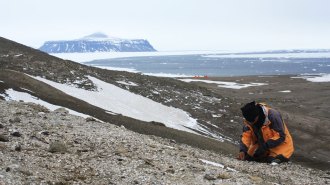 Paleontology
PaleontologyThe first frog fossil from Antarctica has been found
An ancient amphibian from Antarctica gives new insight into when the continent got so cold.
-
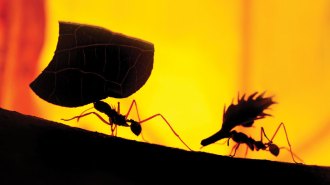 Animals
AnimalsInsects’ extreme farming methods offer us lessons to learn and oddities to avoid
Insects invented agriculture long before humans did. Can we learn anything from them?
By Susan Milius -
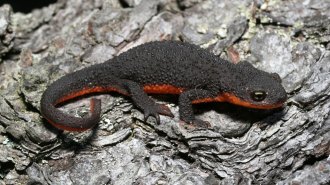 Life
LifeToxin-producing bacteria can make this newt deadly
Bacteria living on the skin of some rough-skinned newts produce tetrodotoxin, a paralytic chemical also found in pufferfish.